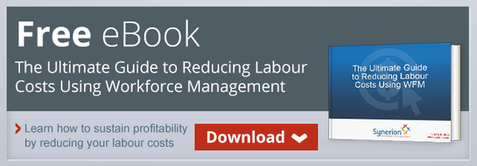 We've all heard the stories of tech start-ups that offer in-house catering, dry cleaning service, ping pong tables, and sleep pods. They've been touted as cutting edge and innovative but do those perks really improve employee retention? Or are those over-the-top companies just trying to look more appealing to young employees? The truth is that elaborate office perks aren't really keeping the best and brightest in place and may actually damage morale. Instead, businesses that offer stability, substantial benefits, and respect keep their best employees and attract the best in the field through word of mouth. Consider these reasons to bulk up your basic employee package rather than resort to flashy perks.
We've all heard the stories of tech start-ups that offer in-house catering, dry cleaning service, ping pong tables, and sleep pods. They've been touted as cutting edge and innovative but do those perks really improve employee retention? Or are those over-the-top companies just trying to look more appealing to young employees? The truth is that elaborate office perks aren't really keeping the best and brightest in place and may actually damage morale. Instead, businesses that offer stability, substantial benefits, and respect keep their best employees and attract the best in the field through word of mouth. Consider these reasons to bulk up your basic employee package rather than resort to flashy perks.
Basic Respect over Foosball
There are things employees crave more than a company personal trainer or a nap pod. Employees want respect and a pleasant workplace. They want managers who care about their personal lives and their professional careers. They want co-workers who value them and a CEO who is looking out for the stability of their future, both professionally and personally. Having a plan for retirement, generous leave policies for illness and rest, and adequate healthcare during crisis will always be preferred over glamorous but ultimately useless perks in an emergency.
Companies who resort to gimmicky perks fall into one of two categories: companies who are successful enough to offer all those benefits plus additional perks and companies who offer perks in place for actual benefits. For those employers who are well-established, additional perks continue to separate them from the rest of the field. For employers who are compensating for a poor employee package, they may attract top talent but they'll quickly lose them to better, but less exciting, benefits.
The Facade of the Concierge Service
While it probably sounds fantastic to prospective employees to hear about the in-house concierge service, often these type of perks are covering up a culture of work over life. Rather than being a fun service to use during working hours, it becomes a lifeline for an employee that doesn't have the time to pick up their own laundry or run their own errands. The perk becomes an excuse for employers to ask more than employees would otherwise be willing to give. Employers who want to keep their best employees need to aim for a balance between work and life. Overworked employees perform poorly and leave their jobs more often than employees whose workplace encourages and rewards hard work but also adequate time at home.
Benefits or Perks?
A young millennial worker recently caused a firestorm of criticism and support after calling out review service Yelp! for providing workers with a stocked kitchen rather than a living wage. While her anger may have been misplaced, the letter did provide an interesting counter balance to the belief that employee perks indicate a healthy workplace. Many tech start-ups rely on interesting office perks because they simply can't afford the time-tested benefits that other thriving companies offer, like retirement and healthcare. While employees are initially attracted to these enticements, they won't stay if some long-term benefits, such as a living wage and retirement plans, are being met as well.
While perks may attract the initial attention of top candidates, a stable workplace that provides a competitive wage and offers work-life balance keeps those employees. High dollar perks like company catering and employee lounge upgrades are only effective when every other facet of the business is excelling. Before breaking down the walls for that company gym, consider whether you are keeping your top talent or simply attracting new talent.
